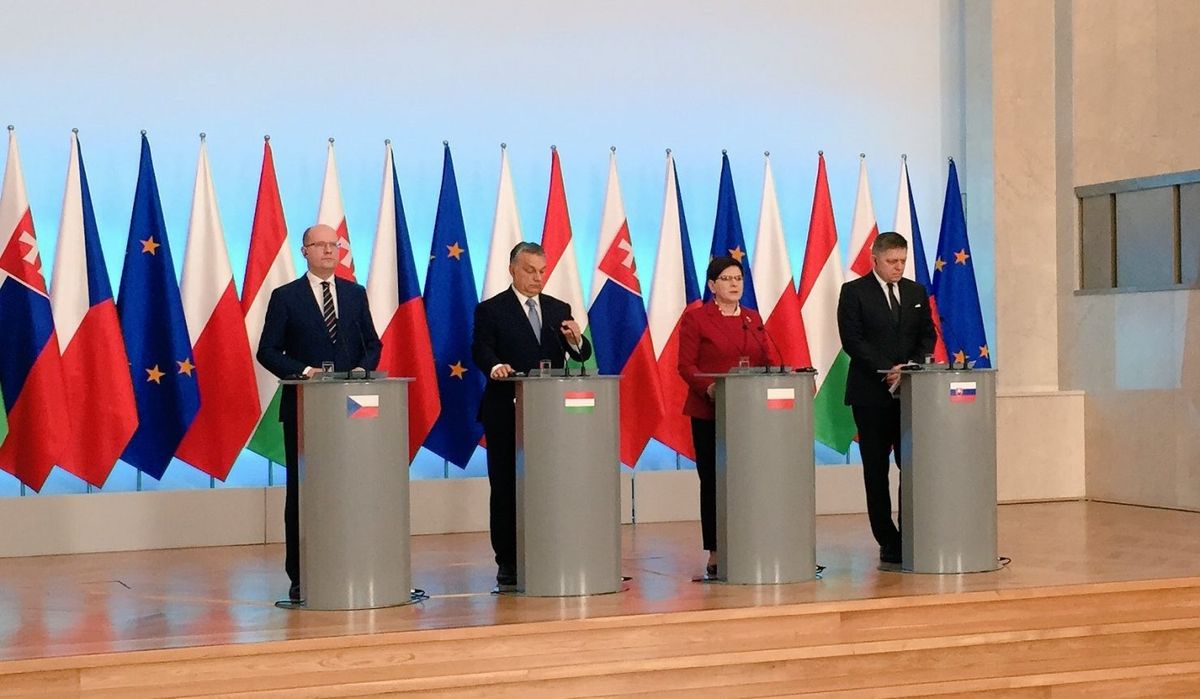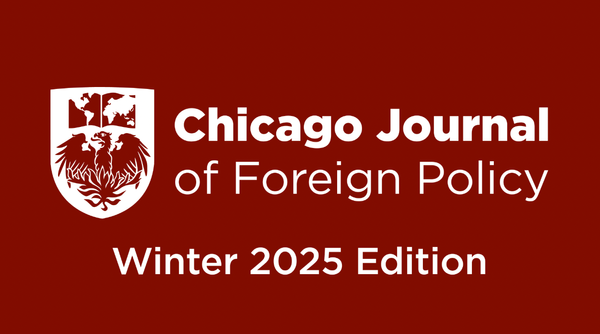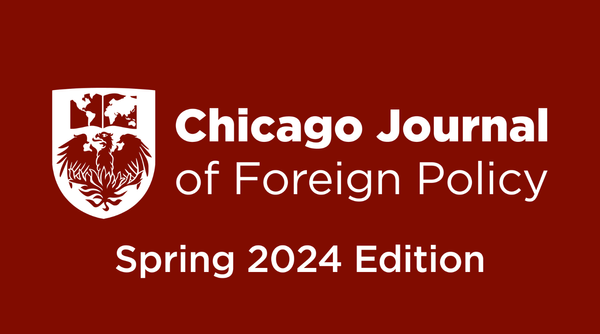Liberty and Democracy After Liberal Democracy in Eastern Europe

by SURYA GOWDA, ’22
Western defenders of liberalism commonly claim that there is an impending backslide into authoritarianism in Eastern Europe. Many Western commentators hold that a rise in populist nationalism in Hungary and Poland, both previously considered poster children for successful post-communist democratization, demonstrates that these countries have turned against liberal democracy. For example, the former leader of Canada’s Liberal Party, Michael Ignatieff, stated that Prime Minister Viktor Orbán of Hungary “has pioneered a new model of single-party rule that has spread through Eastern Europe.”[1] He contrasts this type of rule with liberal democracies in the West, which are characterized by stronger “civil society, independent institutions, and the rule of law.”[2]
While assertions that Eastern Europe is well on its way towards fascism and autocracy may be exaggerated, recent developments in the region do present significant challenges to the European Union (EU) establishment. Orbán’s use of the term “illiberal democracy” to describe the political direction that he thinks his country should move towards not only indicates a growing popularity of a competing socio-political vision to the one the EU offers, but also sheds light on tensions between democracy and liberalism themselves.[3] Liberalism and democracy are intertwined in the West’s more established democracies, but this may not be true in the future and is certainly not true everywhere. Eastern Europeans are increasingly rejecting aspects of liberalism and its anthropological assumptions through democratic means as they come to see liberalism’s consequences in Western Europe and the United States. A growing discomfort with the social views the EU promotes, in addition to a crisis of legitimacy facing Western power structures and elites, can explain why populist nationalist appeals to tradition, national identity, and sovereignty have triumphed over liberal democratic ideals in Eastern Europe in recent years.
Prominent political observer Fareed Zakaria described illiberal democracies in an article in the journal Foreign Affairs as systems in which free and fair elections can take place, but civil liberties are limited.[4] Zakaria points out that the “bundle of freedoms” associated with liberal democracy, which include the rule of law, separation of powers, property rights, and freedoms of speech, religion, and peaceful assembly, can accurately be called hallmarks of constitutional liberalism but should not be directly linked to democracy.[5] Typical examples of illiberal democracies are Erdoğan’s Turkey and Putin’s Russia. In the case of Russia, in particular, its illiberal democracy is thought of by the West as an existential threat to the liberal democratic order, but one that is manageable. Russia’s decaying economy and its status as an outsider of Western international institutions, allow it to be perceived as a backward-looking and deteriorating system that other countries would not and should not think of imitating. Thus, Orbán’s 2014 speech, in which he referred to Turkey, Singapore, and Russia as “successful” nations, greatly alarmed Brussels and the Western media because it seemed to indicate a revolt against the liberal democratic consensus coming from within the EU’s own borders.[6] Then- President Barack Obama targeted Hungary in response at a speech he gave at the Clinton Foundation by using it as an example of a country in which “endless regulations and overt intimidation increasingly target civil society.”[7]
The EU establishment has heavily criticized the Visegrad Group (V4), a cultural and political alliance between Hungary, Poland, the Czech Republic, and Slovakia, since the beginning of the European migrant crisis in 2015 for its position on immigration. The V4 countries have strongly opposed quotas for migrant relocation and pushed for stricter policies with regards to illegal migration to the EU.[8] However, immigration is not the only issue over which the V4, and Poland and Hungary in particular, have come into conflict with the EU. The European Commission recently chose to use Article 7 of the Treaty on European Union against Hungary and Poland for their illiberal policies and reforms. Article 7 is the procedure used to suspend rights of a targeted member nation that violates core EU values, defined as “human dignity, freedom, democracy, equality, the rule of law, and respect for human rights, including the rights of persons belonging to minorities.”[9] In late 2017, the European Commision invoked Article 7 for the first time against Poland, charging Poland with enacting judicial reforms that undermined checks on executive power.[10] The nation was also criticized internationally for a law that made it illegal to blame Poland for the Holocaust. In September of 2018, the European Parliament voted to begin Article 7 sanctions against Hungary for a multitude of reasons, including concerns over its electoral system, corruption, judicial independence, manipulation of media, and policies towards religion and families.[11]
While Article 7 claims to defend “EU values,” it has become clear that as political polarization increases, not all Europeans agree on what “EU values” are. For example, in the vote to censure the Hungarian government, members of the European Parliament’s center-right group were split, with Southern and Eastern members of the group being more likely to oppose taking action against Hungary. Nationalist politicians throughout the continent, such as the Netherlands’ Geert Wilders and Britain’s Nigel Farage, expressed their support for Hungary and Orbán.[12] Those who defended both Poland and Hungary against the proposition of EU sanctions tended to do so on the grounds that sanctions represented a clear overreach of EU powers and threatened the sovereignty of these nations. On issues concerning judicial reforms in Poland, Farage claimed that the EU was being hypocritical and self-serving. After all, he pointed out, the Spanish government violated human rights and abused the democratic process when Spanish police injured hundreds of voters to stop the vote for Catalan independence. Despite this, the European Parliament did not condemn the pro-EU Spanish government. In Farage’s view, Poland’s government was not afforded this privilege even though it was merely trying to “clear out the Communist old guard and modernize [its judicial] system,” because it is critical of the EU.[13] From these and other similar statements, it is evident that many nationalists think the EU is authoritarian and threatens individual nations’ self-determination. Eurosceptics, more broadly, regularly criticize the EU for being an undemocratic and distant bureaucracy. So while the standard view is that authoritarian populist nationalists are threatening democracy, the populist nationalists claim that this is actually true of the EU itself.
Distinguishing between different definitions of the term “democracy” can clear up confusion concerning whether the true defenders of democracy are nationalists or those standing up for “EU values.” Although traditionally defined as a system in which the people rule, democracy has, in effect, come to mean a system in which democratic elections take place and constitutional liberalism and liberal ideals are upheld.[14] Liberalism uses democratic majorities as tools of legitimation if the results of elections are in line with broader liberal goals of expanding or increasing individual liberty, rights, and economic prosperity. Critics of the EU, such as political philosopher Pierre Manent, point out that liberal democratic governmental systems “have the sole purpose of preventing any individual or collective action that is not the simple application of a rule or regulation authorizing rights.”[15] When democratic elections reveal that majorities of the voters reject liberal goals, such as nationalist populist movements’ disapproval of the erasure of national boundaries within the EU, leading liberal voices are quick to call to attention the foolishness and ignorance of the voting population. At once, while some proponents of liberalism call for more democracy, they also call for the public to have less influence over policy making by promoting the growth of government bureaucracy and the transformation of politics into a technocratic “science.” The internal logic of liberalism limits public opinion and results of democratic elections to a set of preferences that serve as a guide for bureaucrats, who create policy that falls in line with liberal ideals.[16]
When nationalists proclaim that the EU and the vision of liberal democracy it promotes is undemocratic, they are appealing to the older understanding of democracy as self-rule. Orbán made no mistake when he said he wanted to apply a “specific, national, particular approach” to core liberal values.[17] His rejection of universalism in favor of a system that benefits and is derived from the culture and values specific to a single people is at the core of the new illiberalism in Eastern Europe. There is still some room for disagreement among liberals on the issue of whether Eastern European countries are truly the greatest offenders when it comes to explicitly dismantling liberalism’s purely political features, such as separation of powers or freedom of expression. For example, while some criticize Poland’s Holocaust law and the media environment in Hungary, others point to rising numbers of criminal investigations related to online hate speech in Germany and the UK as a larger threat to freedom of speech.[18] But what cannot be denied is that Eastern Europeans are less convinced than their Western neighbors of liberal assumptions about human nature and the proper relationship between the individual and society. As professor of political science Patrick Deneen argues, a liberal regime consists of not only certain political arrangements, but distinct anthropological assumptions. These assumptions are, he claims, “anthropological individualism and the voluntarist conception of choice” and “human separation from and opposition to nature.”[19] In this light, the EU Article 7 resolution’s criticism of Hungary’s family policies, which it says are “outdated and based on conservative beliefs,” demonstrate the need for a liberal democratic order to impose its own criteria for the legitimacy of human relationships on institutions as basic as marriage and family.[20] Although it claims to defend democracy, in at least some cases, the Brussels elite practice a form of liberal autocracy by depriving voters of member states of the ability to make the rules for themselves in accordance with the cultures and traditions specific to their individual nations.
Mistrust of EU elites and the power of the U.S., while hardly limited to Eastern Europe, is a major reason why this open rebellion against aspects of liberalism and its anthropological assumptions has been particularly successful in the region. Following the global financial crisis of 2007-2008, the middle and lower classes in Europe felt betrayed by bank bailouts and austerity policies that protected financial elites at their expense. The citizenries of European countries came to see the bureaucrats of Brussels and political elites in general as being out of touch with or just apathetic to their concerns, choosing to push social engineering through mass migration and other such projects instead. For example, the Labour government during the 2000s loosened immigration controls to make Britain more multicultural and “rub the Right’s nose in diversity,” despite being aware that its working class base would not approve.[21] Meanwhile, foreign policy failures and increasing political polarization and social unrest domestically had greatly harmed the United States’ international image.[22]
Although Western European nations had experienced waves of non-EU immigration since the end of World War 2, the rate of migration sped up in the wake of the removal of Muammar Gaddafi in Libya and once again during the migrant crisis that began in 2015. When Chancellor Angela Merkel opened Europe’s borders to refugees and migrants in August of 2015, most of the Western media, corporations, cultural elites, and most on the political left praised her for her decision. However, most Eastern Europeans and many Western Europeans, as well, were horrified at what was taking place. Hungary quickly built a fence on its border with Serbia and Croatia and restricted access to asylum, and Poland announced that it would not comply with EU migrant relocation quotas.[23] Critics of mass migration condemned it as a ploy to benefit corporations by increasing job competition and allowing them to lower wages, all while increasing the share of minorities in the voting population to help left-wing parties stay in power. High rates of non-EU immigration would ultimately result, the nationalists argued, in increased terrorism and crime, decreased social cohesion, “Islamization,” and the demographic replacement of Europeans by non-Europeans. The Brexit vote in the UK further demonstrated dissatisfaction with EU policies on national sovereignty and migration. Economic factors, like high unemployment and austerity, and immigration-related concerns led to a rise in popularity of populist nationalist politicians in Western Europe who channeled discontent with the cultural, financial, and political elites. These crises presented threats to the legitimacy of the economic and political paradigms dominant in Brussels (and in Washington, D.C.) that were extremely consequential in Eastern Europe.
Eastern Europeans’ experiences with the West and its social progressivism have also fueled their rejection of dominant paradigms of liberal democracy. After the Berlin Wall fell, many of Eastern Europe’s talented young people chose to emigrate west to work in the EU’s wealthier nations. Years later, when some of those immigrants who had worked abroad returned to their home countries, they, surprisingly, did not bring the socially progressive, secular, and multicultural ideas prevalent in the West back home. Instead, in the words of professor of politics Aleks Szczerbiak, “their experience of the West seems to have reinforced their social conservatism and traditionalism in many ways.”[24] The fact that Orbán has made billionaire investor and philanthropist George Soros public enemy number one is also significant. Soros, a well-known funder of media and organizations that promote feminism, LGBTQ+ rights, racial and ethnic minority rights, and mass migration, had set up multiple branches of his grantmaking network, Open Society Foundations, in Eastern Europe during the post-Communist transition to liberal democracy.[25] Many Eastern Europeans saw Brussels and influential private organizations’ promotion of secularism and pro-migration attitudes as a threat to their social conservatism and traditional definition of nationhood and chose to support nationalist parties that promised to defend their values.
Eastern Europe’s disapproval of the social progressivism, mass migration, and multiculturalism that have been transforming Western Europe and are promoted by the EU’s elites, is rooted in a rejection of liberalism’s anthropological assumptions rather than its political arrangements. Liberalism’s understanding of humans as non-relational beings by nature causes it to overemphasize the element of free choice based on rational self-interest when determining the legitimacy of all human relationships.[26] After undermining the basis for loyalty to a nation, a culture, or institutions that one did not choose to belong to, such as the family, the church, or local communities, liberalism is left to condemn any enforcement of social or cultural norms as encroachments on individual liberty. However, liberalism’s attack on norms results in a citizenry “liberated” from the very culture and institutions that gave rise to the basis for liberal principles in the first place. As Deneen, an outspoken critic of liberalism, points out, the foundations of constitutional liberalism, like inviolable human dignity and limits on centralized power, are found in pre-liberal thought.[27]
By preserving these concepts and rediscovering preliberal understandings of democracy and liberty as “self-governance of both city and soul,” Eastern Europe can provide a viable alternative to liberalism’s view of human nature and relationships.[28] With the legitimacy of the EU’s vision of liberal democracy being threatened due to various economic and socio-cultural crises, it is likely that many in Western Europe will look east not only for a defense of sovereignty, tradition, and nation, but also for a way to preserve liberty and democracy after liberal democracy.
Works Cited
[1]Kingsley, Patrick. “As West Fears the Rise of Autocrats, Hungary Shows What’s Possible.” The New York Times. February 10, 2018. Accessed December 17, 2018. https://www.nytimes.com/2018/02/10/world/europe/hungary-Orbán-democracy-far-right.html.
[2]Ibid.
[3]“Modern Authoritarianism: Illiberal Democracies.” Freedom House. July 10, 2017. Accessed December 1, 2018. https://freedomhouse.org/report/modern-authoritarianism-illiberal-democracies.
[4]Zakaria, Fareed. “The Rise of Illiberal Democracy.” Foreign Affairs 76, no. 6 (November/December 1997): 22-43. doi:10.2307/20048274.
[5]Ibid.
[6]Tóth, Csaba. “Full Text of Viktor Orbán’s Speech at Băile Tuşnad (Tusnádfürdő) of 26 July 2014.” The Budapest Beacon. October 23, 2014. Accessed December 17, 2018. https://budapestbeacon.com/full-text-of-viktor-Orbáns-speech-at-baile-tusnad-tusnadfurdo-of-26-july-2014/.
[7]“Orbán the Unstoppable.” The Economist. September 27, 2014. Accessed December 17, 2018. https://www.economist.com/europe/2014/09/27/Orbán-the-unstoppable.
[8]“Visegrad Countries Urge Stronger EU Border Defense.” DW. June 21, 2018. Accessed December 2, 2018. https://www.dw.com/en/visegrad-countries-urge-stronger-eu-border-defense/a-44336264.
[9]Cameron, David R. “EU Deploys Article 7 Against Poland & Hungary for Democratic Backsliding.” The Yale MacMillan Center. September 17, 2018. Accessed December 18, 2018. https://macmillan.yale.edu/news/eu-deploys-article-7-against-poland-hungary-democratic-backsliding.
[10]Ibid.
[11]“EU Parliament Votes to Punish Hungary Over ‘Breaches’ of Core Values.” BBC News. September 12, 2018. Accessed December 18, 2018. https://www.bbc.com/news/world-europe-45498514.
[12]Ibid.
[13]UKIP MEPs. YouTube. February 28, 2018. Accessed December 18, 2018. https://www.youtube.com/watch?v=IoDBv4SHmb0.
[14]Zakaria, Fareed. “The Rise of Illiberal Democracy.” Foreign Affairs 76, no. 6 (November/December 1997): 22-43. doi:10.2307/20048274.
[15]Manent, Pierre. Democracy without Nations?: The Fate of Self-government in Europe. Wilmington, Delaware: Intercollegiate Studies Institute, 2007.
[16]Deneen, Patrick J. Why Liberalism Failed. New Haven: Yale University Press, 2018.
[17]Tóth, Csaba. “Full Text of Viktor Orbán’s Speech at Băile Tuşnad (Tusnádfürdő) of 26 July 2014.” The Budapest Beacon. October 23, 2014. Accessed December 17, 2018. https://budapestbeacon.com/full-text-of-viktor-Orbáns-speech-at-baile-tusnad-tusnadfurdo-of-26-july-2014/.
[18]“Germany Is Silencing “hate Speech”, but Cannot Define It.” The Economist. January 13, 2018. Accessed December 18, 2018. https://www.economist.com/europe/2018/01/13/germany-is-silencing-hate-speech-but-cannot-define-it.
[19]Deneen, Patrick J. Why Liberalism Failed. New Haven: Yale University Press, 2018.
[20]Pocius, Skomantas. “The EU Condemns Hungary for Sticking Up for Faith and Family.” The American Conservative. November 12, 2018. Accessed December 18, 2018. https://www.theamericanconservative.com/articles/the-eu-attacks-hungary-for-sticking-up-for-faith-and-family/.
[21]Whitehead, Tom. “Labour Wanted Mass Immigration to Make UK More Multicultural, Says Former Adviser.” The Telegraph. October 23, 2009. Accessed December 17, 2018. https://www.telegraph.co.uk/news/uknews/law-and-order/6418456/Labour-wanted-mass-immigration-to-make-UK-more-multicultural-says-former-adviser.html.
[22]Krastev, Ivan. “Eastern Europe’s Illiberal Revolution.” Foreign Affairs. December 07, 2018. Accessed December 17, 2018. https://www.foreignaffairs.com/articles/hungary/2018-04-16/eastern-europes-illiberal-revolution?cid=int-rec&pgtype=art.
[23]Hutton, Will. “Beware the Illiberal Alliance of Poland and Hungary, a Grave Threat to the EU.” The Guardian. January 07, 2018. Accessed December 19, 2018. https://www.theguardian.com/commentisfree/2018/jan/07/hungary-poland-had-enough-of-liberal-democracy-eu-must-act.
[24]Davies, Christian. “‘More Girls, Fewer Skinheads’: Poland’s Far Right Wrestles with Changing Image.” The Guardian. November 18, 2017. Accessed December 17, 2018. https://www.theguardian.com/world/2017/nov/18/more-girls-fewer-skinheads-polands-far-right-wrestles-with-changing-image.
[25]Santora, Marc. “Soros Foundations Leaving Hungary Under Government Pressure.” The New York Times. May 15, 2018. Accessed December 19, 2018. https://www.nytimes.com/2018/05/15/world/europe/soros-philanthropy-hungary-viktor-orban.html.
[26]Deneen, Patrick J. Why Liberalism Failed. New Haven: Yale University Press, 2018.
[27]Ibid.
[28]Ibid.





